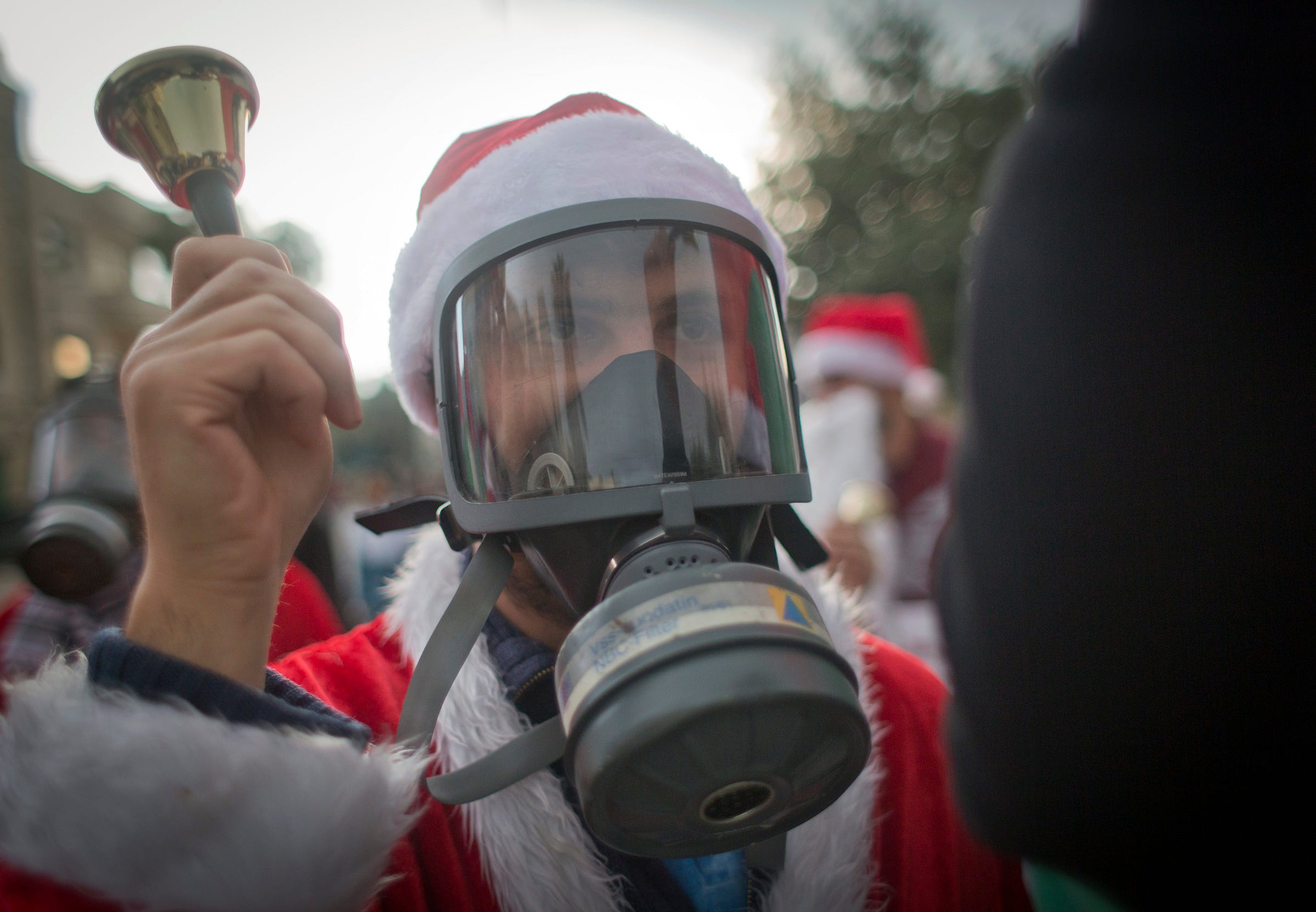Unsettling Advent 2023, Day 14
“But she was much perplexed by his words and pondered what sort of greeting this might be. The angel said to her, ‘Do not be afraid, Mary, for you have found favor with God.’ (Luke 1:29-30)
There is arguably no better songwriter today than Jason Isbell. While the Southern rocker has never recorded a Christmas album, his song “Anxiety” could be an appropriate Word&Way Advent hymn. Has anyone defined the word “anxiety” better than in this line? “I know I’m a lucky man today, but so afraid that time will take it all from me.”
At its root, anxiety is fear of the unknown. In other words, it’s the fear of mystery, and thus the fear of change and, above all, of losing what we have.
Change is the hallmark of our era, and everyone is anxious, though not always for the same reasons. White, conservative Americans might be fearful as demographics shift, they lose the majority, and they no longer recognize the culture they grew up in. Meanwhile, more progressive Americans grieve for what we are losing to climate change, while also living in terror of the violence, discrimination, and assault on freedom and democracy that a second Mussolini Trump administration could bring.
The change is real. The fear is also real. But this Advent, there are two quotes that can remind us that while it is natural to feel anxiety at times, we should try not to remain in such a state.
The first is biblical: “Fear not.”
The prophets said it frequently to the Hebrew people. Jesus said it to those he healed. In the Advent and Christmas stories alone, angels repeat the message at least four times: to Zacharias, Mary, Joseph, and the shepherds.

The second quote is from author Anne Lamott: “The opposite of faith is not doubt, but certainty.” Or as John Patrick Shanley wrote in Doubt, “Certainty is an emotion, not a fact.”
If certainty is the opposite of faith, then mystery is the heart of faith. And can there be a better time for embracing mystery than in Advent?
In Advent, we wait and prepare for the coming of Christ — yes, the first coming at Christmas, but also the second coming. The thing is, none of us knows exactly what that phrase “second coming” means.
Maybe the second coming really will be a rapture, or the enthronement of Christ in a thousand-year reign on earth. Maybe. Or perhaps there won’t just be a second coming, but also a third, a fourth, and a ten millionth. Maybe Christ returns every day: as the waitress we tipped well, the refugee family our church sponsored, the driver we flipped off, or the homeless man we ignored.
The second coming could be anything. As Jesus says, no one knows the day or the hour. Even the Apostle Paul’s own understanding of the second coming seems to have changed with time, shifting from one epistle to the next.
Try as we might, we’ll never figure it out. All we can do is embrace the mystery. All we can do is follow the Advent recipe of waiting and preparing. And if this is true for future spiritual changes, it’s true for current political changes as well. We begin to calm our anxieties only when we learn to accept the presence of divine mystery in our lives.
Certainly, that’s easier said than done. As the child of two geologists and the head of a campaign organization, I’m a man of both science and action, not of waiting. Certainly, Christ calls us to act — to love God and to love our neighbors in concrete, social ways.
But the search for answers and the drive to shape change into something positive are to be held in balance with the embrace of cosmic, divine mystery. If we act without pausing to rest, reflect, and wonder, we’ll miss the chance to sit still in the presence of God. And if we fear taking action when results aren’t guaranteed, we’ll either paralyze ourselves with inaction, or burn ourselves out with anxiety and fear.
This is not the time for burnout. Too much is at stake. If we are to stand firm in our faith — to stand firm in the fights against right-wing fascism, sexism, and Christian Nationalism — then paradoxically, we must rest. We defeat anxiety by choosing to spend time dwelling in mystery alongside Emmanuel in the manger: alongside God with us.
Rev. Nathan Empsall is executive director of Faithful America, an online community of nearly 200,000 grassroots Christians putting faith into action for love and social justice, as well as an Episcopal priest.

